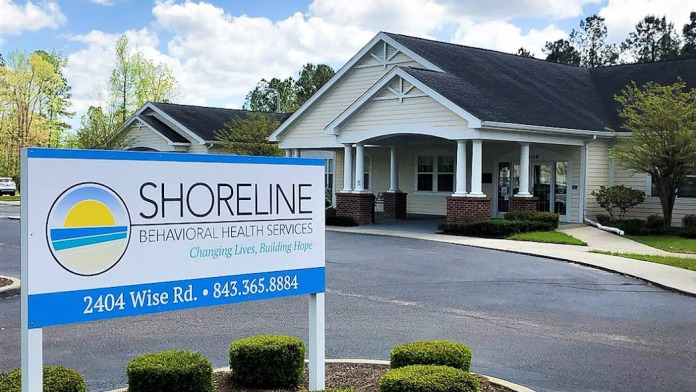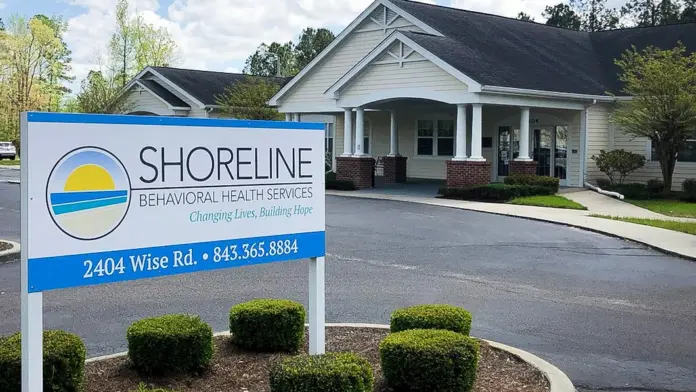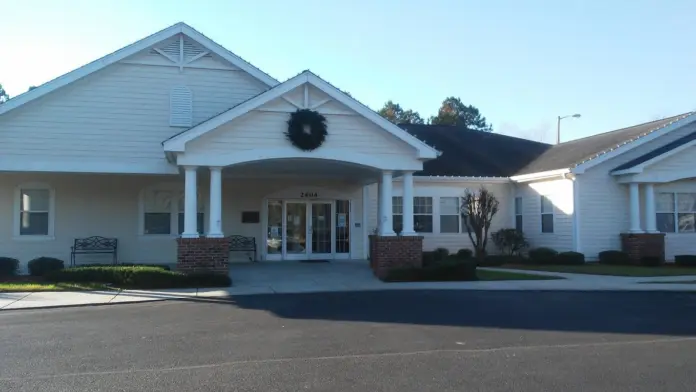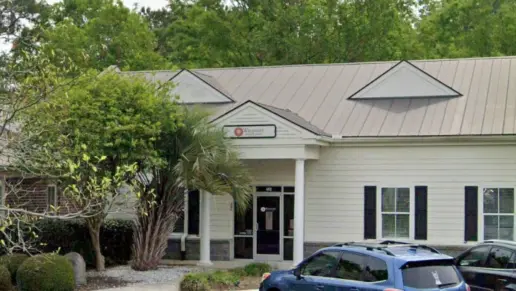People here only care about money and what your insurance can or can not provide them! Try taking the bright side, and you'll realize the only thing they care about is checks.
About Shoreline Behavioral Health Services
Shoreline Behavioral Health Services is an outpatient treatment center in Conway, South Carolina, that specifically treats drug and alcohol addiction. They have services for adolescents and adults.
The typical addiction treatment program here is an intensive outpatient program or IOP. That’s where you live at home or in a sober living home and you come to the facility for treatment three times a week for three hours each time. This is primarily group therapy, so you’ll be meeting with your peers as well as addiction counselors to discuss and work through the issues that arise on your recovery journey. The IOP can be a helpful way to get an intensive level of treatment while also having a job and managing other responsibilities, so life doesn’t have to come to a halt. After your IOP you can transition into aftercare, which is one session of counseling per week.
There are a few programs and services here that I especially want to highlight. The first is their adolescent program. They have an IOP for teens ages 12 to 18 which addresses addiction within the specific ways that adolescents need. If you have a child younger than 12, though, who is struggling with addiction, then they can still help. They make special arrangements for kids under 12 whenever possible.
The second program to note is their IOP for women. This program addresses the factors that are especially common among women with addiction, like trauma. They can even offer medications like Suboxone and Vivitrol for pregnant clients with opioid addiction. This medication assisted treatment is a service they can provide to any adult client, too.
This facility has a variety of other programs such as a DUI program if you’re facing or convicted of DUI charges, as well as a problem gambling program. They also offer a harm reduction program that provides drug safety education and distributes Narcan for emergency use.
Some clients say they experienced administrative issues, particularly in the DUI program, such as issues with paperwork and reporting. However, a lot of clients here say that the treatment programs are helpful and the counselors are caring and knowledgeable.
Facility Overview
Latest Reviews
Rehab Score
Gallery



Location
Accepted Insurance
Other Forms of Payment
Private insurance refers to any kind of healthcare coverage that isn't from the state or federal government. This includes individual and family plans offered by an employer or purchased from the Insurance Marketplace. Every plan will have different requirements and out of pocket costs so be sure to get the full details before you start treatment.
Self-pay involves paying for treatment out of your own pocket. You can use savings or credit, get a personal loan, or receive help from family and friends to fund your treatment. If you don't have insurance or your insurance plan doesn't cover a specific program, self-pay can help ensure you still get the care you need.
Financial aid can take many forms. Centers may have grants or scholarships available to clients who meet eligibility requirements. Programs that receive SAMHSA grants may have financial aid available for those who need treatment as well. Grants and scholarships can help you pai for treatment without having to repay.
Sliding scale payments are based on a client's income and family size. The goal is to make treatment affordable to everyone. By taking these factors into account, addiction recovery care providers help ensure that your treatment does not become a financial burden to you or your family, eliminating one barrier to care.
Medicaid is a state based program that helps lower-income individuals and families pay for healthcare. Medicaid covers addiction treatment so those enrolled can use their coverage to pay for rehab. When a program accepts Medicaid the client often pays very little or nothing out of their own pocket.
Addiction Treatments
Levels of Care
Treatments
The goal of treatment for alcoholism is abstinence. Those with poor social support, poor motivation, or psychiatric disorders tend to relapse within a few years of treatment. For these people, success is measured by longer periods of abstinence, reduced use of alcohol, better health, and improved social functioning. Recovery and Maintenance are usually based on 12 step programs and AA meetings.
Choosing a drug rehab in South Carolina helps you overcome drug dependency, learn how to manage cravings, and obtain the tools needed to prevent relapse. This is accomplished through individualized treatment that addresses a full spectrum of physical, social, and emotional needs.
Opioid rehabs specialize in supporting those recovering from opioid addiction. They treat those suffering from addiction to illegal opioids like heroin, as well as prescription drugs like oxycodone. These centers typically combine both physical as well as mental and emotional support to help stop addiction. Physical support often includes medical detox and subsequent medical support (including medication), and mental support includes in-depth therapy to address the underlying causes of addiction.
Substance rehabs focus on helping individuals recover from substance abuse, including alcohol and drug addiction (both illegal and prescription drugs). They often include the opportunity to engage in both individual as well as group therapy.
Programs


Clinical Services
They offer family services and encourage family involvement through regular progress updates and family support / therapy. Evidence has shown that family involvement in a child’s treatment increases the likelihood of a more successful outcome. Research clearly demonstrates that recovery is far more successful and sustainable when loved ones like family members participate in rehab and substance abuse treatment.
Group therapy is any therapeutic work that happens in a group (not one-on-one). There are a number of different group therapy modalities, including support groups, experiential therapy, psycho-education, and more. Group therapy involves treatment as well as processing interaction between group members.
In individual therapy, a patient meets one-on-one with a trained psychologist or counselor. Therapy is a pivotal part of effective substance abuse treatment, as it often covers root causes of addiction, including challenges faced by the patient in their social, family, and work/school life.
Trauma therapy addresses traumatic incidents from a client's past that are likely affecting their present-day experience. Trauma is often one of the primary triggers and potential causes of addiction, and can stem from child sexual abuse, domestic violence, having a parent with a mental illness, losing one or both parents at a young age, teenage or adult sexual assault, or any number of other factors. The purpose of trauma therapy is to allow a patient to process trauma and move through and past it, with the help of trained and compassionate mental health professionals.
Amenities
-
Residential Setting
Staff & Accreditations
Staff

Chairman

Vice Chairman

Secretary
Accreditations

The Commission on Accreditation of Rehabilitation Facilities (CARF) is a non-profit organization that specifically accredits rehab organizations. Founded in 1966, CARF's, mission is to help service providers like rehab facilities maintain high standards of care.
CARF Accreditation: Yes
Contact Information
2404 Wise Road
Conway, SC 29526







